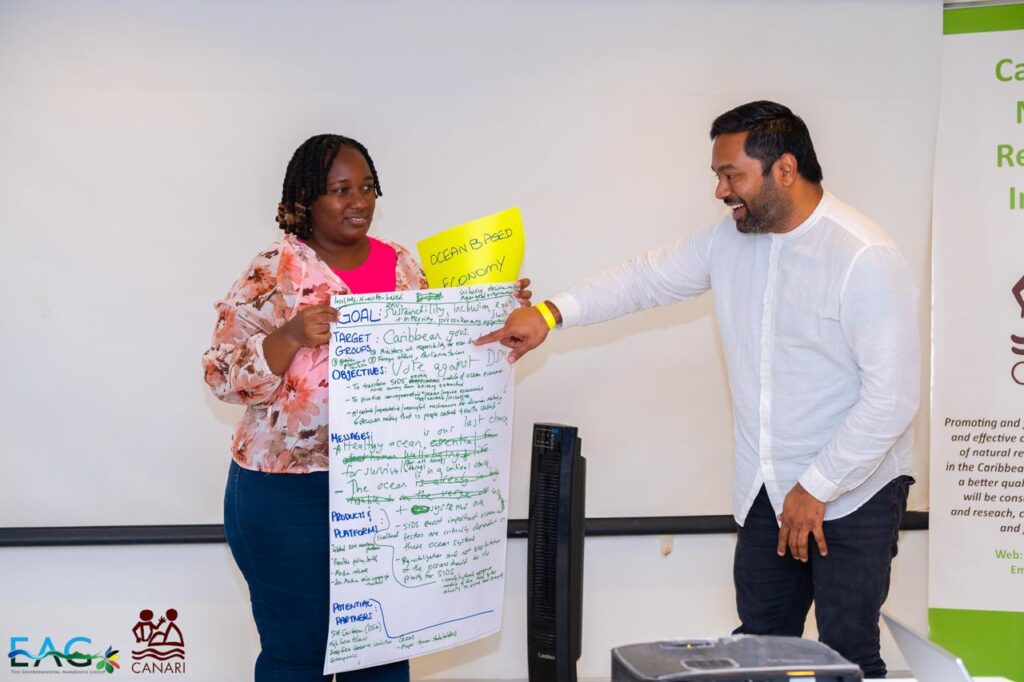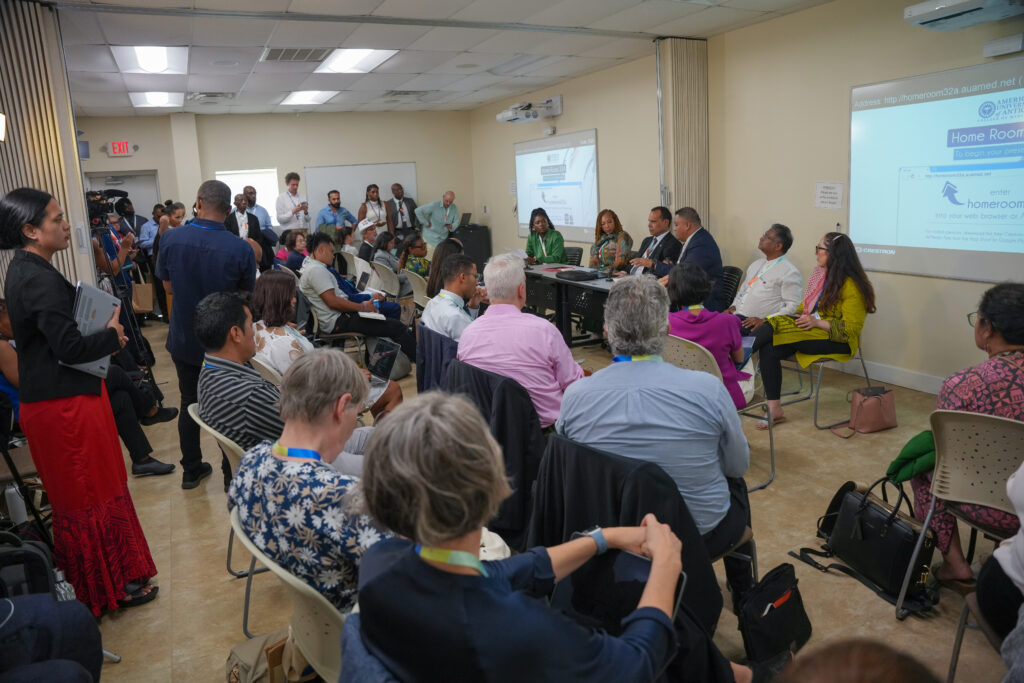Civil society leaders within the Caribbean say their role in the climate fight must not be diminished, and critical climate finance must trickle down to grassroots organisations.
On the eve of the Fourth International Conference on Small Island Developing States (SIDS4), Climate Analytics Caribbean Director, Rueanna Haynes, called for greater access to climate finance for community groups, grassroots organisations and academic institutions. “When you’re dealing with the integration of the social environmental and economic, the most effective place to deal with it is as close to the issues as possible,” Haynes told Guardian Media.
While civil society groups are present in Antigua and Barbuda for SIDS4, several groups Guardian Media spoke to are hopeful such access will come post-SIDS4.
Omar Mohammed, the Chief Executive Officer (CEO) of The Cropper Foundation, a member of the Caribbean Climate Justice Alliance, said civil society organisations lead most climate change initiatives in places like T&T.

Mohammed said, “It’s interesting to note that most of the actual practical local activities that find their way into government reports on national adaptation activities, and mitigation activities are being implemented by civil society.”
He emphasised the local mitigation efforts are concrete. “If you are looking at the adaptation of a coastal community versus a community in and around a forest, those mitigation, those adaptation needs could be very different, and in most cases, these local civil society groups are the best placed to translate those needs into effective action,” he said.
Mohammed added that climate financing through entities like the Green Climate Fund and the Adaptation Fund is generally channelled through State entities and is “exceedingly complex.”
🎉 It’s official! 🎉
— UN DESA Sustainable Development (@SustDev) May 30, 2024
The Antigua and Barbuda Agenda for #SIDS sets out the #sustdev priorities of #smallislands for the next 10 years and the support they need from the global community to get there.
Check out the #SIDS4 outcome document just approved: https://t.co/LN5Mjkv70X pic.twitter.com/WKIpgNt8iJ
He would like to see civil society engaged at two levels, one at the national level where a space is created for meaningful participation. Then, at the project development level where access to finance is key. He said meaningfully engaging civil society in adaptation work in those communities is needed to ensure it is designed properly.
Meanwhile, the founder of the Fondes Amandes Community Reafforestation Project, Akilah Jaramogi, said a different meeting should speak directly to civil society groups.
“I would like to see the financial community clearly defining areas in which they are willing to help, and this is in terms of grants, not even loans because civil society groups are not in a position to repay loans,” Jaramogi said.

She further said civil society groups are under-represented around the tables where decisions are made. “This is something we need to address. There is nothing about us without us. Governments need to know that,” she stated.
Senior Research Fellow, at the UWI St Augustine Campus, Dr Preeya Mohan, said climate finance flowing into academic institutions is also critical as it creates a more informed and engaged citizenry. She added, “Access to climate finance can empower academic institutions like The UWI in the climate fight.
Funding can support our vital research. Resources can be used to develop educational programmes on climate change for students, communities, and policymakers such as our MSc in Climate Studies.”
Such funds, Mohan said, can also be directed towards collaborative projects with local communities, fostering knowledge exchange and developing solutions that address specific regional needs.
SIDS4 wrapped up on Thursday in Antigua and Barbuda.
—
This story was originally published by the Trinidad and Tobago Guardian and is re-published with permission. It was written by Ryan Bachoo, Climate Tracker Caribbean’s alum COP27 and Energy Transition Journalism Fellow.